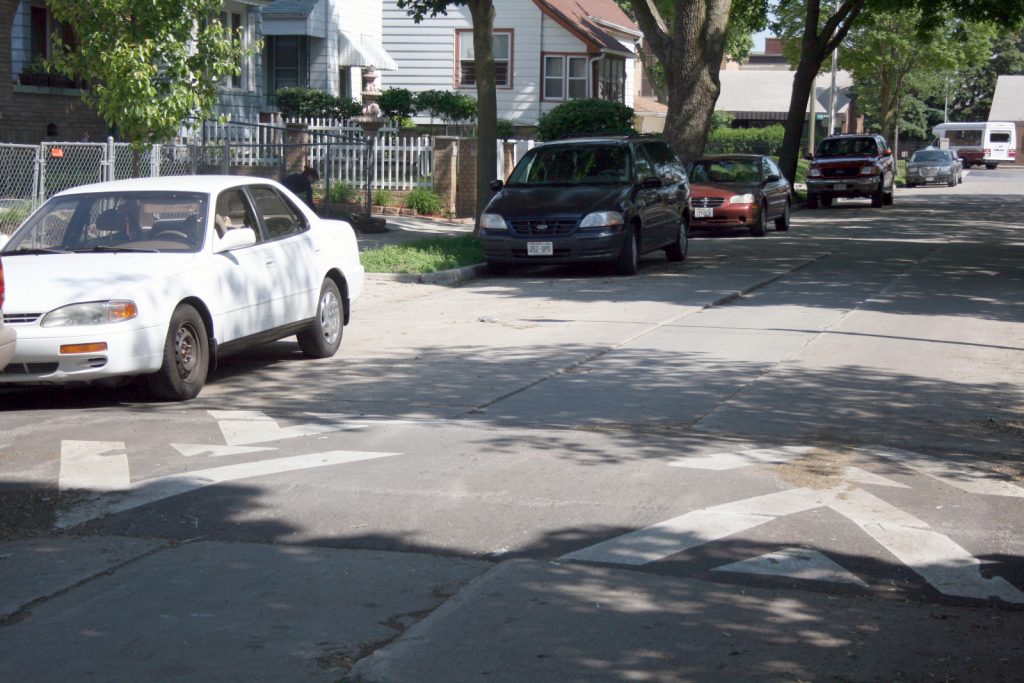City Could Make Speed Humps Cheaper
Committee approves slashing cost for property owners by 69% to combat reckless driving.
Do you want a speed hump on your block? It’s a question a growing number of Milwaukee residents are likely asking themselves with the surge in reckless driving.
If you can get your neighbors to agree, and don’t live on an arterial street, the Department of Public Works will install one for you. But at a cost.
But a new proposal pending before the Common Council would lower the average per property cost to approximately $80. The city would shift the recovery rate to only 33% of the cost, $2 per foot.
“I’ve heard from constituents in the past that the financial hardship was too much for them to pay,” said Alderman Michael Murphy in presenting the proposal to the Public Works Committee on Wednesday.
In September, the alderman convinced his colleagues to allocate $1 million of the city’s $197.2 million American Rescue Plan grant to pay for speed humps. His thought was to make the speed humps free.
“Initially I was looking at zero,” said Murphy of the recovery rate. But he said DPW convinced him that some level of financial buy-in would be a benefit, and more equitable for those who previously paid for a hump.
“I agree,” said Ald. Robert Bauman.
Ald. Jose G. Perez asked if Murphy looked at using census tracts to determine an income-based rate.
“It’s an issue I thought about early on,” said Murphy.
But he said the fee is paid by the property owner, who is not always the resident. Low-income areas have higher percentages of renters.
“As you know, parts of our city now are being purchased by hedge funds,” said Murphy.
“Even in low-income neighborhoods,” injected Bauman.
Perez said he would have liked to see a checklist that allowed people to qualify for a lower-cost or even free option.
“It’s something we can look at in the future,” said Murphy.
City Engineer Jerrel Kruschke said many of the requests are already coming from low-income census tracts.
Perez, Bauman, Russell W. Stamper, II, Mark Borkowski and JoCasta Zamarripa all signed on as co-sponsors.
“This is a good compromise,” said Bauman.
Speed humps are one of the many tools the city is using to combat reckless driving. But unlike larger reconstruction projects, placement of the asphalt humps and associated signage is almost entirely resident initiated.
Still concerned about the cost? The city allows residents to spread the payment across 10 years and billing does not occur until after the speed hump is installed.
DPW hires contractors to complete the work. According to legislative records, recent speed humps have cost between $7,100 and $12,000. The public works department first started installing the humps in 2007, with more than 500 having been installed to date.
The full council is slated to consider the proposal on Dec. 14.
If you think stories like this are important, become a member of Urban Milwaukee and help support real, independent journalism. Plus you get some cool added benefits.
Political Contributions Tracker
Displaying political contributions between people mentioned in this story. Learn more.
- December 13, 2018 - José G. Pérez received $50 from Mark Borkowski
- May 5, 2015 - José G. Pérez received $100 from JoCasta Zamarripa


























“As you know, parts of our city now are being purchased by hedge funds,” said Murphy.
Actually, I’d like to know more about these Milwaukee real estate hedge funds that are mentioned in the article. Do they pay taxes? Are hedge funds a help or hurt to Milwaukee?
@MilwaukeeCitizen – The hedge funds are not locally based, not are they necessarily all hedge funds (they can be REITs and other investment vehicles). They do pay property taxes, but are not a local landlord.
The extent to which it is a problem in Milwaukee is unclear, but it has drawn lots of national attention. https://www.nbcnews.com/business/real-estate/who-s-outbidding-you-tens-thousands-dollars-house-hedge-fund-n1274597
As often is the case when I read articles from Urban Milwaukee, I learn more than the core subject. I appreciate this kind of reporting. Also, thanks for the link to the NBC article about hedge funds. I suppose time will tell how these hedge funds play out in Milwaukee.